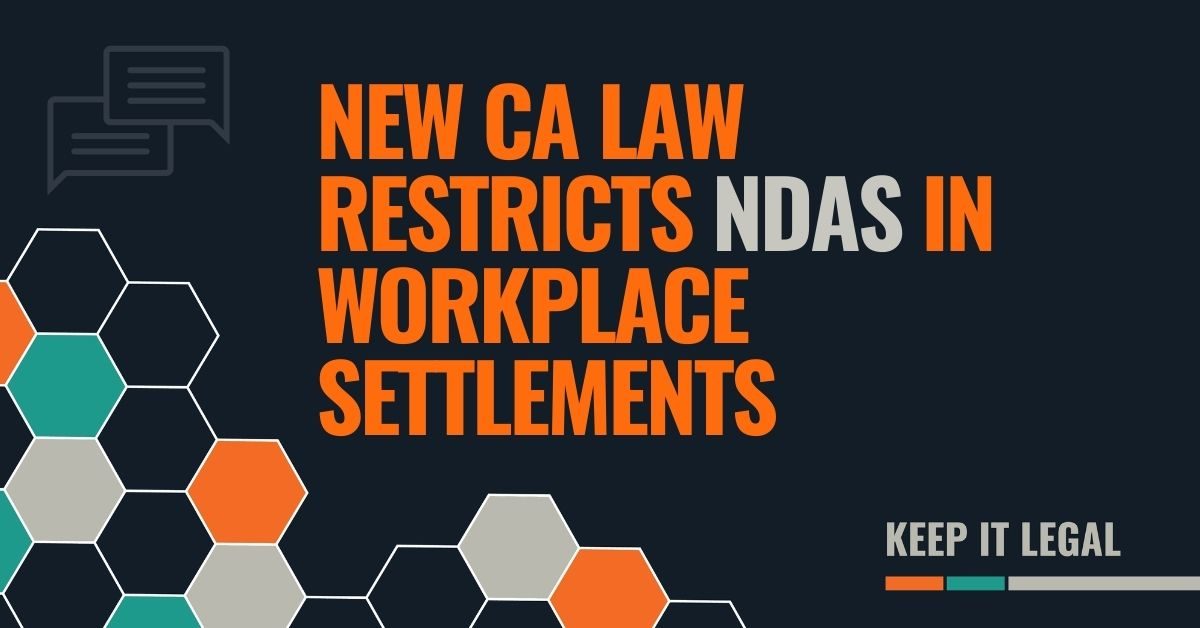A new year means new laws go into effect. On January 1, 2022, the Silenced No More Act (S.B. 331) officially became law in California. The SNMA expands on previous restrictions on non-disclosure agreements signed between employers and employees.
Some employers believe that they can put whatever they want in an employee settlement agreement, and as long as the employee signs the document and takes the money, the employer has nothing to worry about. That’s not the case in California.
A prior law, S.B. 820 (the Stand Together Against Non-Disclosure Act or STAND), outlawed non-disclosure provisions in settlement agreements, but only to the extent that the NDAs prevented the parties from disclosing sexual harassment claims. The types of claims covered by STAND included sexual assault, sexual harassment, and harassment or discrimination based on sex in the workplace or in housing accommodations.
The new law, SNMA, adds to STAND and outlaws provisions in settlement agreements that prevent the parties from disclosing information about any kind of discrimination, harassment, or retaliation in the workplace. SNMA applies to any agreements signed on or after January 1, 2022.
Specifically, the new law now prohibits employers from including contractual provisions that prevent the disclosure of information about all types of harassment or discrimination, as opposed to just those based on sex. So SNMA can be understood to prevent NDA clauses based on age, gender, disability, medical condition, national origin, race, religion, or color, among other protected characteristics.
A settlement agreement can prohibit the employee (or former employee) from disparaging the employer, but only if the agreement includes the following specific language as detailed in the statute: “Nothing in this agreement prevents you from discussing or disclosing information about unlawful acts in the workplace, such as harassment or discrimination or any other conduct that you have reason to believe is unlawful.”
So, to be clear, any workplace settlement agreement that includes nondisparagement terms must include that exact sentence. Otherwise, those terms are in violation of California law.
SNMA also dictates the timing of separation agreements. Specifically, an employer who offers a separation agreement must notify the employee that she has a right to consult an attorney, and that she has “a reasonable time period of not less than five business days in which to do so”. An employee may sign the agreement in fewer than five days, but only under specific circumstances, so employers should take care about the timing and keep careful records of the circumstances around the termination and the signing of the agreement.
SNMA details a few points that are allowed in settlement agreements. If the employee wants to keep her identity private, a provision to that effect may be included in the agreement at her request. Employers can still include terms that prevent the employee from disclosing the amount paid in a severance agreement. And, wisely, the law doesn’t prohibit an employer from including terms that protect their “trade secrets, proprietary information, or confidential information that does not involve unlawful acts in the workplace.”
This is a reminder that employers must always take care when entering into settlement or separation agreements with California employees and ensure that any such agreements are in compliance with current law.
If you have questions about business law, feel free to be in touch with me.


